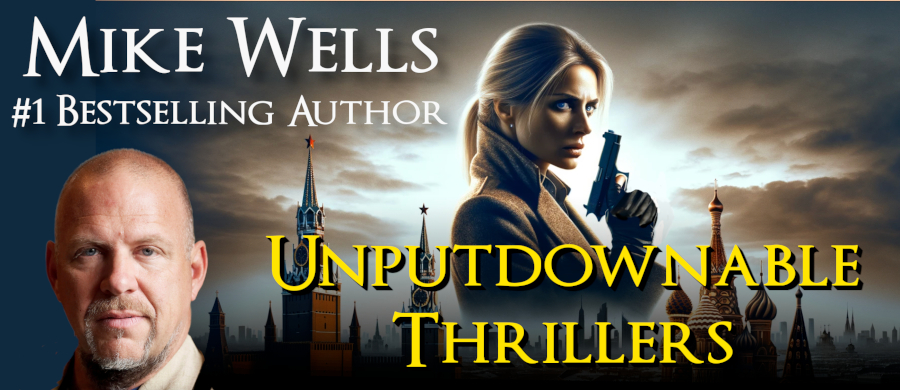I’ll never forget the first time my wife read one of my novels. As she was finishing the last few pages, I sat at my computer, pretending to work, butterflies in my stomach. Would she love it or hate it?
When she was done reading, she set the manuscript aside and gazed over at the TV set. She seemed lost in thought.
“Well?” I said uneasily.
“Mike, does Bruce Willis have a dog?”
I was taken aback. “Excuse me?”
She went over to the VCR and picked up the videocassette case for Die Hard, the movie we’d watched the night before.
“In Die Hard, does the character that Bruce Willis plays have a dog?”
“Well...hell if I know! I don’t remember any dog in the movie.”
“Exactly. We don’t know whether he has a dog or not because it doesn’t have anything to do with the story.”
I looked over at my manuscript. “What are you saying?”
“What I’m saying is that you could have a really great book if you did a lot of cutting. The way it stands, the story is bogged down with too many irrelevant details.”
Irrelevant details? What an insult! A long, heated discussion ensued, and I viciously defended each and every word in the book. It ended with me shouting “What the hell do you know?” and storming out of the house, vowing to never let the moron I married read another word of my writing.
But after a little time passed and I calmed down, I opened up the manuscript and started reading it myself, trying my best to be objective. I decided there were maybe one or two places where I went overboard, explaining too much about the hero’s background and other details. Finally I went back to my wife, apologized, and gave her the manuscript and a yellow highlighter. “If you wouldn’t mind, I’d love for you to go through entire book and mark each and every word that you think isn’t necessary.”
“My pleasure.”
When she was done, there was so much yellow on the paper it looked like Bruce Willis’ nonexistent dog had taken a leak on it.
As a writer, this was one of the most eye-opening processes I’ve ever experienced. What I learned from it is that if you’re writing plot-driven stories, like I usually write,
each and every bit of information you include should have something to do with the story. If it doesn’t, the words needs to be mercilessly cut.
In the famous words of William Faulkner: “In writing, you must kill all your darlings.”
Die Hard is a very good example of how important this principle is. In the movie, do we know if the hero (John McClaine, played by Bruce Willis) has a dog? No, we don’t. What about his home—does he live in a house or an apartment? Again, we don’t know, because there are no scenes set in his home. What about his family? Does he have any aunts or uncles? Again, we don’t know, because that has nothing to do with the story.
Now, in contrast, consider The Wizard of Oz.
Do we know if Dorothy has a dog? Of course we know this—the dog’s name is Toto. We know it because Toto plays a key role in the story. Among other things, it's Toto that pulls back the curtain to reveal the Great and Powerful Wizard of Oz is nothing a harmless old man hiding behind a bunch of fancy equipment.
Does Dorothy live in a house, or an apartment? We know that, too—she lives in a house, which is sucked up into the tornado—this is inciting incident for the entire story! Furthermore, the house lands smack on top of the Wicked Witch of the East and kills her, which is what gets Dorothy in so much trouble in Oz.
Finally, does Dorothy have an aunt? We know that, too. Good old Aunty Em. Dorothy misses her terribly when she believes she’ll be stuck in Oz forever and can’t get back to Kansas. The aunt plays a key role in the story.
So, back to the original question:
Does Bruce Willis have a dog?



